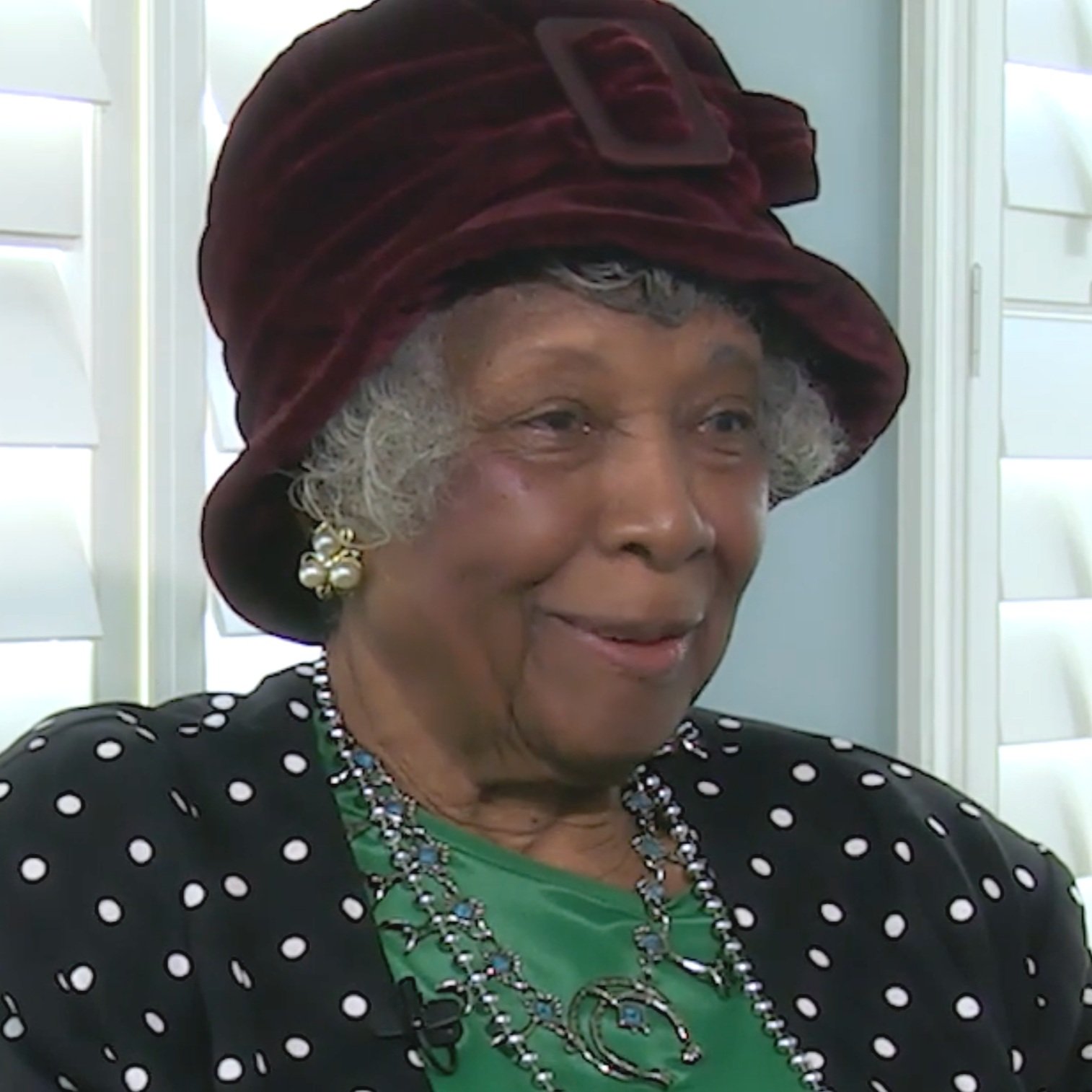Carrie Chapman
Loan Analyst – RURAL ELECTRIFiCATION AGENCY
Carrie Chapman’s parents traveled from Canton, South Carolina to seek employment opportunities in District of Columbia circa 1900. Carrie remained with her grandmother until her parents sent for her. Family members often traveled to northern cities as individuals or as couples, leaving their offspring in the care of relatives. Carrie’s paternal grandmother took excellent care of her. In the rural South, life with her grandmother meant doing hard work and attending a segregated school. Children often worked to supplement the income of their families, putting in long days of backbreaking labor. Carrie described her life in those early years. “I picked cotton in South Carolina as a child. There was no age limit for picking cotton.” When Carrie reached the age of 12, she traveled to Washington, DC to join her parents. In our interview, she called the living conditions after arriving in the District by describing how her parents took pride in keeping a home nice. Carrie remembered the early years, saying, “We could only afford a home in an alley. We kept our place clean. My mother planted flowers and shrubs around the house. She was a proud woman.”
Carrie settled into a new routine in the District when she enrolled at Terrell Jr. High School and the later attended Cardozo High. “I came to D. C. when I was 12 years old.” As an alum of a Washington, DC high school, Carrie enrolled in classes in shorthand and typing. She believed her education prepared her "to get a decent job”. Cardozo High School prepared you for business workforce and teaching.” At a young age, Carrie often dreamed of becoming a fashion designer. After high school, these dreams gave her the courage to seek employment at a small upscale dress shop in DC. The owner of the establishment failed to see past her color and potential by assigning her the task of sweeping the sidewalk. Carrie possessed the appropriate credentials to fill the posted position as a clerk. However, racist behaviors revealed themselves on the second day on the job. Carrie refused to do the assigned task and sought employment with the federal government.
Carrie applied for her first federal civil service job as mail carrier. As a native Washingtonian, Carrie crisscrossed the streets of the District of Columbia to deliver inter-office mail for various federal departments. She routinely used public transportation to execute her duties as a mail carrier. In the nation’s capital, Black people followed the rules of segregation by riding in the back of the bus. “Even delivering mail for the federal government, I still had to get on the back of the bus.” Carrie shared her experience working in the era of Jim Crow and how she delivered inter-office government mail in inclement weather, paying her fare at the front of the bus, but being required to sit at the back of the bus. Delivering mail in inclement weather convinced Carrie to seek another job in the federal workforce.
A job posting in the Federal Examination Announcements caught her eye. Carrie met the qualifications and applied to take the civil service position. The Rural Electrification Administration (REA) advertised openings for typists. Prior to the existence of the REA, citizens residing in rural areas of the United States did not have access to electricity. The REA, established in 1935 under President Roosevelt’s administration, operated under the auspices of the Department of Agriculture. Carrie found employment in this relatively new federal department. In a department dominated by White male engineers, Carrie found herself in an uncommon position. She was the sole female and Black in the office.
Carrie also understood the plight of rural farm families. Raised in rural South Carolina, she understood and empathized with the plight of rural residents and farmers. Carrie realized her good fortune when she moved from the typing pool to working shoulder-to-shoulder with the White men in the REA department.
She remembered, “Even though some of us had gone to high school or college. The Lord had a better vision for us. We could always get a job cleaning in an office. But getting a desk job was another story. Those jobs were only reserved for White people. I always wanted to be a secretary. I liked the idea of being in an office, and seeing important people coming in and out of the office and making them feel comfortable. I could learn something from them.”
Taking pride in her work, Carrie knew the importance of accuracy in processing the REA loans. The margin for error became clear as she stated, “I did the typing and checked every engineer’s work before it was taken to the director.” Carrie Chapman quickly learned the nuances of her new position in the Rural Electrification Agency (REA) Department. Preparing the public private contracts, filing blueprints, processing loan applications, and organizing other legal documents for the REA served as the vehicles for using her typing and clerical skills. One day she summoned the courage to ask her immediate supervisor for a raise. To her surprise, she received the raise!
Asking for and receiving wage increases as a result of her exceptional performance at the REA enabled Carrie to move up the federal civil service ladder. Living in Washington, D.C. with the benefits of appliances and modern amenities, she sometimes took electricity for granted. However, working in the REA served as constant reminder of the days she spent without electricity in the South. Carrie remained determined that her work reflected her compassion for the rural families. Carrie remained with the REA until she decided to retire at 62 years old.

